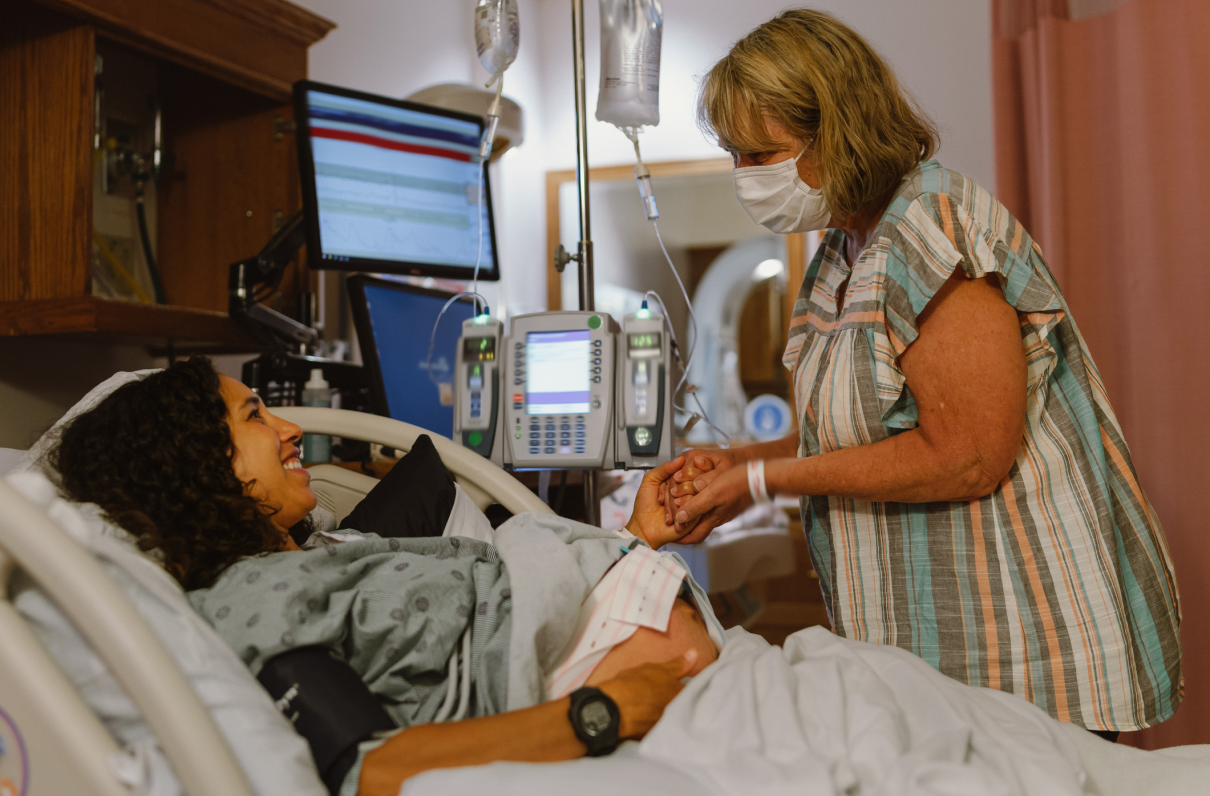This article by Karen Jowers originally appeared on Military Times, the nation's largest independent newsroom dedicated to covering the military and veteran community.
Expectant mothers overseas now have the option to participate in the Tricare Childbirth and Breastfeeding Support Demonstration, which includes coverage of services from certified labor doulas, certified lactation consultants and certified lactation counselors.
The demonstration expanded Jan. 1 to those overseas and in U.S. territories. Tricare officials have also made some changes in requirements, including adjustments in visit requirements and doula requirements in the U.S. This demonstration program provides childbirth and breastfeeding support services to those who have Tricare Prime, Tricare Prime Remote or Tricare Select, both overseas and in the U.S.
Labor doulas are trained, non-medical professionals who provide educational, emotional and physical support for the birthing mother before, during and a short time after labor. To qualify for the doula services under the demonstration project, mothers must be at least 20 weeks pregnant, plan to give birth outside a military hospital or clinic and see a Tricare-authorized provider for the birth.
[RELATED: What You Should Know About the Dependent Care Flexible Spending Account Program]
Since the demonstration began in the U.S. in January, 2022, more than 14,000 beneficiaries have participated in the program, according to Defense Health Agency officials. As authorized by Congress, the five-year demonstration will run through 2026. At that time, Tricare officials will determine whether the coverage will become permanent. The initiative is measuring maternal and child health outcomes for beneficiaries who receive these support services from doulas and/or lactation counselors or consultants, compared with those who don’t.
In addition to expanding the benefit overseas, Tricare announced new rules for the demonstration that also took effect Jan. 1.
Under the new rules, Tricare now covers up to six hours of visits by a certified labor doula, which can be split into 15-minute increments. That doesn’t count the visit during birth, which is not timed. Previously, Tricare measured its coverage by visits, not hours, covering up to six visits by a certified labor doula, in addition to the visit during birth.
The doula changes seem to provide greater flexibility in doula sessions and potentially higher reimbursement for some doulas, said Karen Ruedisueli, director of health affairs in government relations for the Military Officers Association of America, a nonprofit military advocacy group. By allowing the visits to be split up, it will allow the patient and the doula to decide the most appropriate use of their visit allowance.
[RELATED: Marines to Reimburse Nursing Mothers Shipping Breast Milk During PCS Moves]
People overseas who are interested in the demonstration must register by contacting the Tricare overseas contractor, International SOS, before getting any services. International SOS will let expectant mothers know within 14 days if the contractor can find a Tricare-authorized provider. Tricare can’t guarantee that a provider will be available for every interested beneficiary.
Expectant mothers in the U.S. don’t need referrals. But those in Tricare Prime need a referral from their primary care manager if they see a non-network provider. Otherwise, point-of-service charges may apply without the referral. Those in the U.S. should check with their regional Tricare contractor to see if they qualify.
The new rules also require certified labor doulas in the U.S. to sign a participation agreement to take part in the demonstration, and they can’t ask the beneficiary to pay for covered services once the deductible has been met. Providers can’t ask the beneficiary to file their own claims. Labor doulas must have a current certification from an approved certifying organization, and that list now includes the National Black Doulas Association.
Overseas labor doulas aren’t required to sign a participation agreement, but they must meet certain qualifications.
For the demonstration’s breastfeeding support services, rules stipulate that mothers must be at least 27 weeks pregnant and qualify for Tricare’s breastfeeding support benefit. Those who don’t qualify for breastfeeding support under the demonstration may qualify for Tricare’s existing breastfeeding support benefit.
[RELATED: MOAA's TRICARE Guide]
The demonstration still covers six total sessions of breastfeeding support; these sessions are already a Tricare benefit. Mothers can get these services from lactation consultants or lactation counselors in group or individual sessions.
And the demonstration allows sessions and services by professionals who are trained to provide lactation counseling or consultation but aren’t Tricare-certified medical providers. Lactation counselors are trained to provide breastfeeding counseling to support normal lactation of breastfeeding parents of healthy, full-term infants. Lactation consultants can provide all of those services, plus additional services when complex breastfeeding problems arise.
Other articles by Military Times:
In quiet shift, Marines allow mixed-gender DI teams to train recruits
Perry Dahl, one of the last living WWII fighter aces, dies at 101
1,800 California National Guardsmen activated for LA fire response
Support Military Spouses
Donate to The MOAA Foundation and support MOAA’s efforts to help military spouses in their career journeys.
